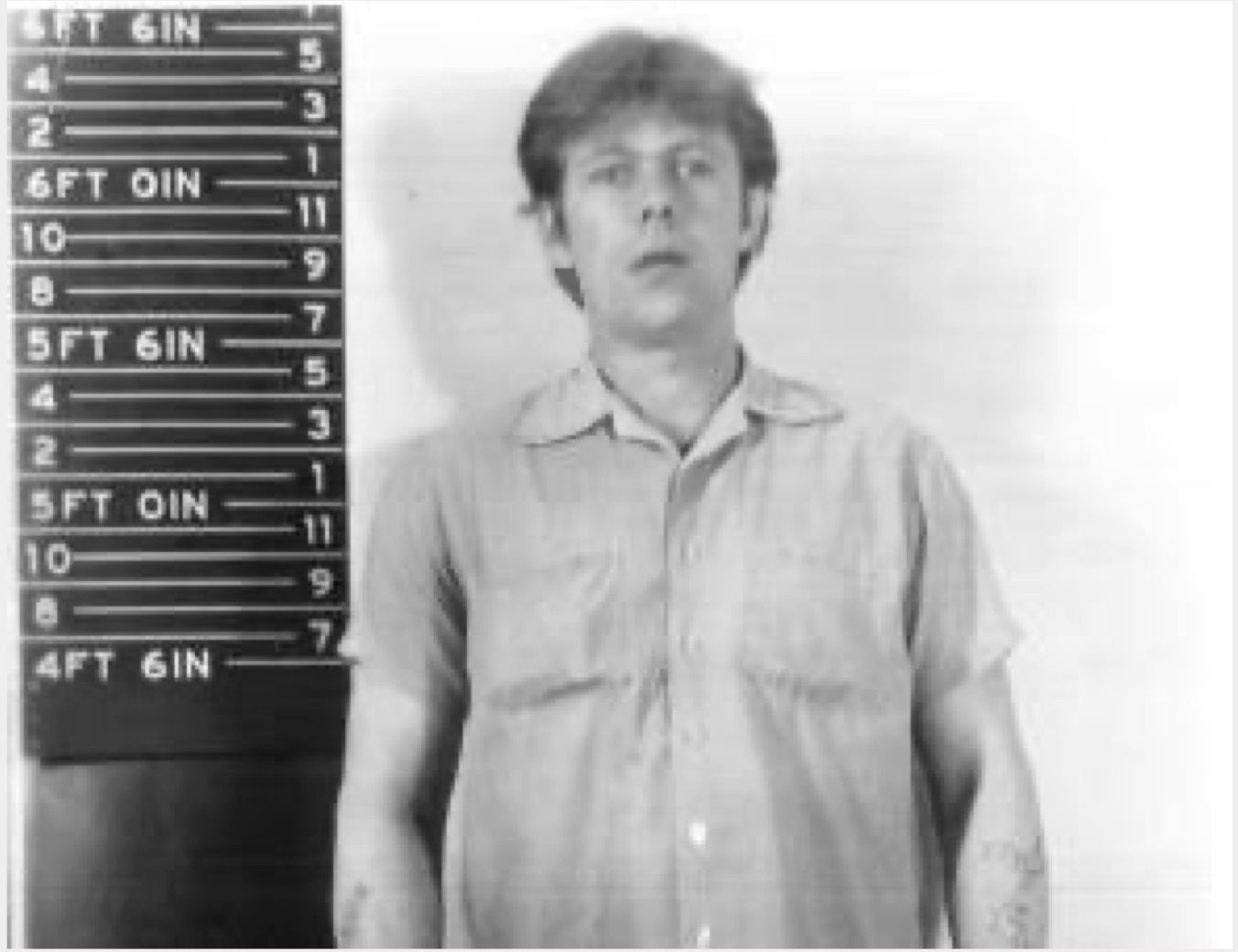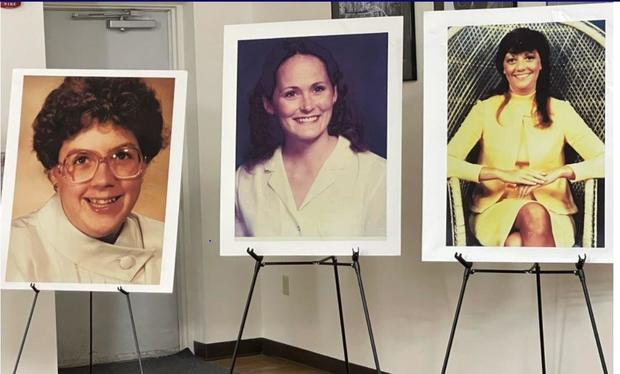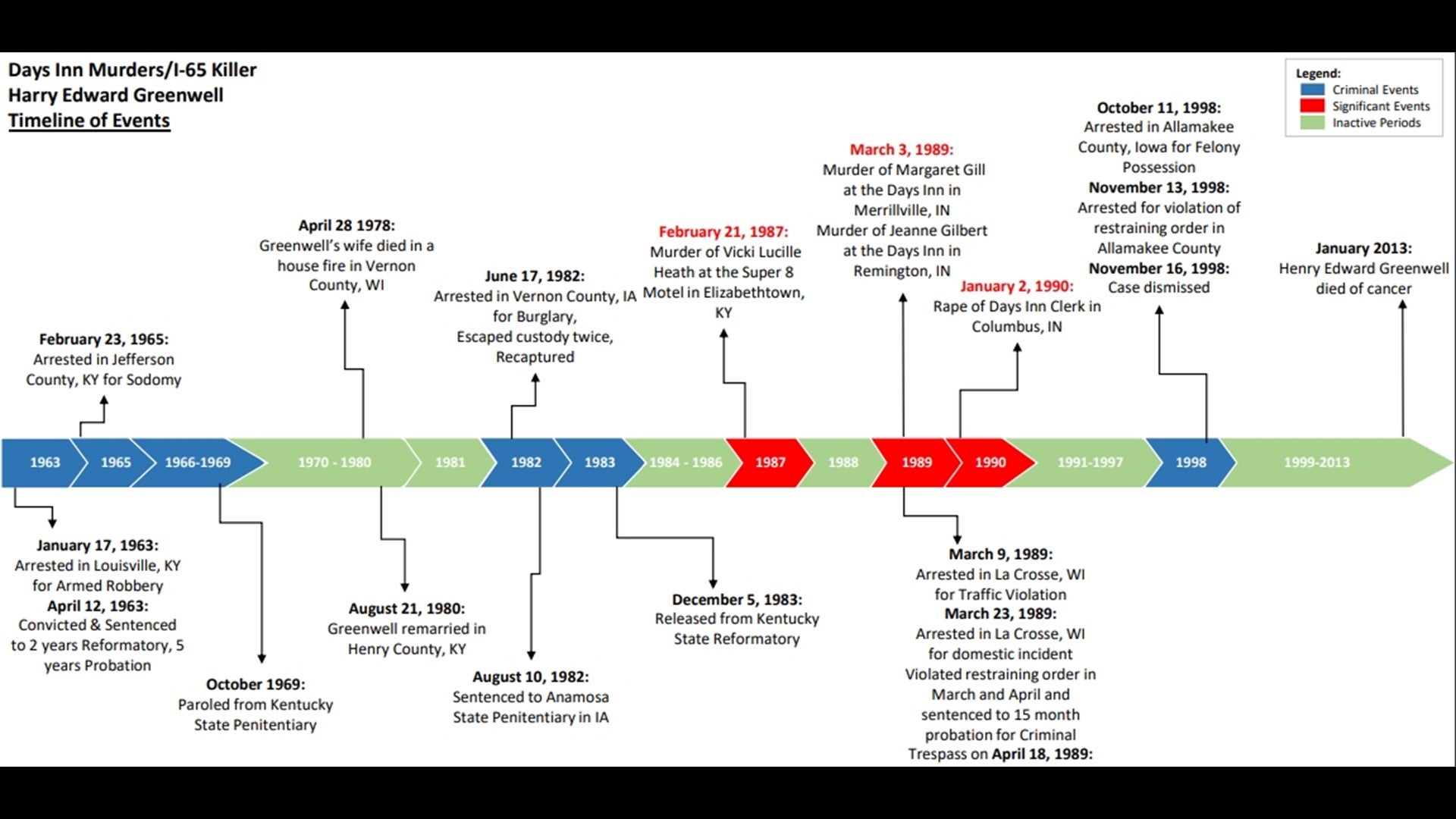I-65 serial killer: Everything we know about unmasked murderer Harry Edward Greenwell
Mystery murderer raped and shot three female motel clerks between Indiana and Kentucky in late 1980s

The “I-65 Killer”, also known as the “Days Inn Killer”, has been identified by police as Harry Edward Greenwell more than 30 years after he allegedly raped and murdered three female motel clerks along Interstate 65 between Indiana and Kentucky in the late 1980s.
The case went unsolved for decades before Indiana State Police, the FBI and officers from the police department in Elizabethtown, Kentucky, announced the suspected serial killer’s identity at a press conference on 5 April.
Authorities said Greenwell - who died in 2013 at the age of 68 - was finally identified through “investigative genealogy” which showed his DNA was a more than 99 per cent match to crime scene evidence.
Speaking exclusively to The Independent on Wednesday, Greenwell’s widow said even she was unaware of his horrific crimes.
“The animal that did this is no longer on this Earth. I’m not going to say his name. I think we need to focus on the victims today,” Indiana State Police Superintendent Doug Carter said at the multi-agency press conference.
Investigators also believe Greenwell could be linked to several other unsolved crimes including rapes, murders, assaults and robberies. Indiana State Police Sgt Glen Fifield said officials are still looking into that possibility.
Greenwell’s widow, Julie Jenkins, echoed that fear to The Independent, saying “it’s certainly a possibility” that he killed other women.
“When you know what you do about serial killers, they generally don’t just stop – so I hope, no, I pray, that there aren’t going to be more victims that he’s linked to. But I fear there’s a real possibility,” she said.
Ms Jenkins, a 73-year-old grandmother living in Minnesota, was married to Greenwell for nearly 20 years before his death in 2013. Reeling from the news of his alleged killings, she said Wednesday: “One thing that’s going through my mind is that, I guess, I’m lucky to be alive.
“I keep thinking about our life together, and he was ... kind, he was caring. He did have a temper [but] that’s not unusual. I don’t think you kill people because you’re mad at them – not ... strangers. I don’t know what to think about much of it, other than that I feel horrible for the families that dealt with that for so many years – and I know there’s nothing I can do.
“I’m sorry. I had no idea.”
Greenwell was a family man, a farmer, a do-gooder and a generous soul, according to his 2013 obituary. He died in Iowa after a battle with cancer, it said, describing him as having “many friends who loved his straight-up attitude, and his willingness to help anyone.
“His spirit will live on in many by good deeds he offered,” it continued – years before he was named as a serial killer.

Born in Louisville and one of more than a half-dozen siblings – several of whom have also passed away – Greenwell worked for the Canadian Pacific Railroad “providing public safety for 30 years” before retiring in 2010, the obituary read.
“Harry enjoyed organic gardening, selling his organic produce at the local Farmers Market, traveling, reading, wordsmithing, avid college sports fan, and selecting winning thoroughbred horses.”
At the time of his death, he was married to Julie Jenkins, who had three adult children of her own; Greenwell had his own son and daughter in addition to living siblings, nieces, a nephew, great-nephews and a great-niece.
That’s in stark contrast to the portrait painted on Tuesday at a multi-agency press conference announcing that DNA had linked Greenwell to at least three murders.

The first woman allegedly attacked and killed by Greenwell was Vicki Heath, a 41-year-old mother of two who had recently gotten engaged before she was found dead beside the trash cans behind the Super 8 Motel in Elizabethtown on 21 February 1987.
Investigators said subsequently that the motel’s lobby betrayed signs of a struggle and it emerged that Heath had been assaulted and shot twice in the head with a 38-calibre pistol.
The killer’s second and third victims were both slain on the same day: 3 March 1989.
Mary “Peggy” Gill, 24, a night auditor at a Days Inn motel in Merrillville, Indiana, was found dead in the building’s parking lot by a passing motorist, having met the same fate as Heath.
Her family said she had loved baking, cross-stitching and painting, according to The Indianapolis Star.
The last victim was Jeanne Gilbert, 34, a mother of two who also worked as a part-time auditor at the Remington Days Inn, near Remington in the same state.

Both Gill and Gilbert had been fatally shot with the same .22-calibre and the attacker had robbed both premises, making off with $426 in total.
A fourth woman working the night shift at a Days Inn motel in Columbus, Ohio, was sexually assaulted and stabbed in 1990 but managed to escape the scene and the DNA retrieved from the incident enabled police to conclude that her attacker was the same man responsible for the other slayings.
She described her assailant as six foot tall with greasy hair, a grey beard and green eyes (one of which was lazy), wearing a beanie hat, a flannel shirt and jeans.
A year later, another woman survived a similar attack in Rochester, Minnesota, that may also have been linked.
Police officially considered the matter a cold case until 2008 when fresh analysis of the DNA evidence was commenced.
Two years later, the affair was confirmed as being a serial killer spree.

This week’s reveal of Greenwell’s identity brought some closure to the victims’ families - however they will never learn why their relatives were targeted.
“I’d like to believe that whatever each of us defines as justice, or what each of us might define as closure, that we’re all now able to share the healing process knowing the long known attacker has now been brought out of the dark, into the light,” Gilbert’s daughter, Kim Gilbert Wright, told the Indy Star.
Greenwell’s widow, Ms Jenkins, told The Independent her foremost thoughts are with the families of the victims.
“It was kind of a sucker-punch when the FBI contacted me,” she said. “I thought, ‘Well, this can’t be real. This can’t be ... but then that [agent] mentioned family has a right to know - and I thought, ‘Absolutely they do.’ So I did what I could to point them in the right direction, and then I didn’t hear anymore - and then I almost forgot about it.
“I just want the families of the victims to know how sorry I am for what they’ve gone through. If there had been anything I would’ve known to alter the situation before this, I certainly would’ve done it.
“I don’t know that they’d want to reach out to me for anything, I certainly would not be averse to that happening.”
Of the avid, kind gardener she thought she’d married, she says: “I guess you think you know somebody.
“I thought I knew him, but apparently I didn’t know him very well.”



Bookmark popover
Removed from bookmarks